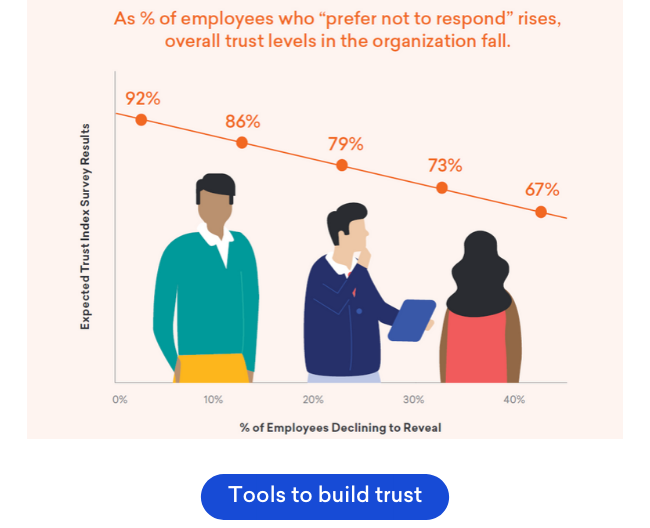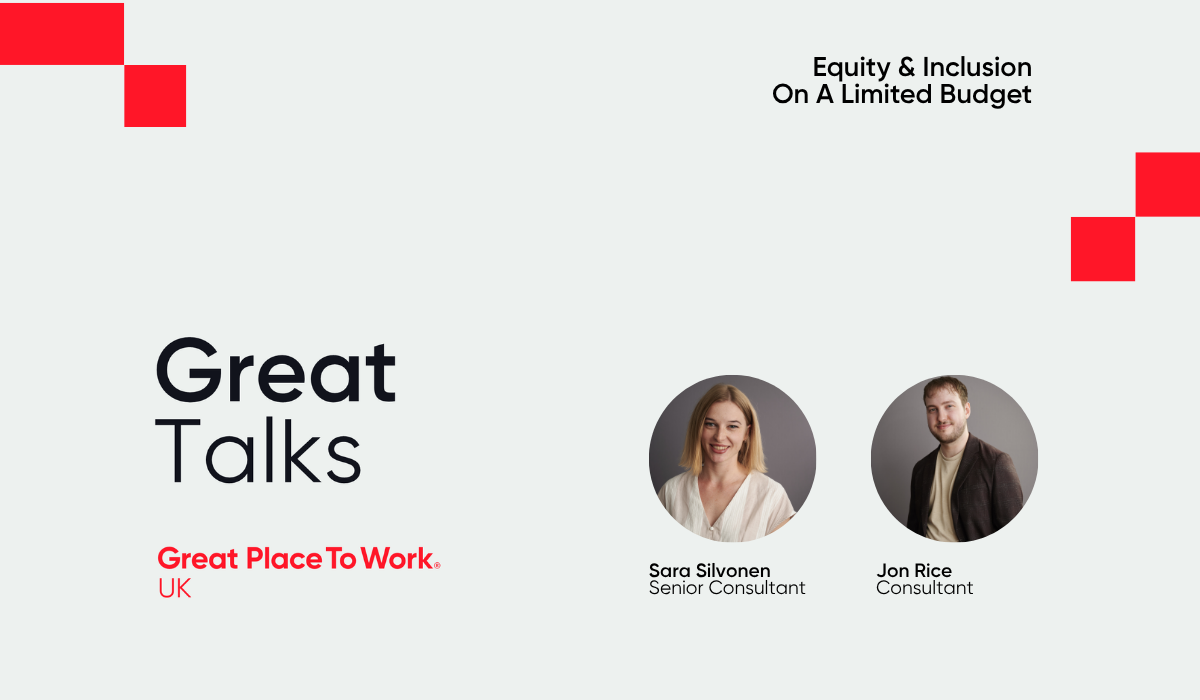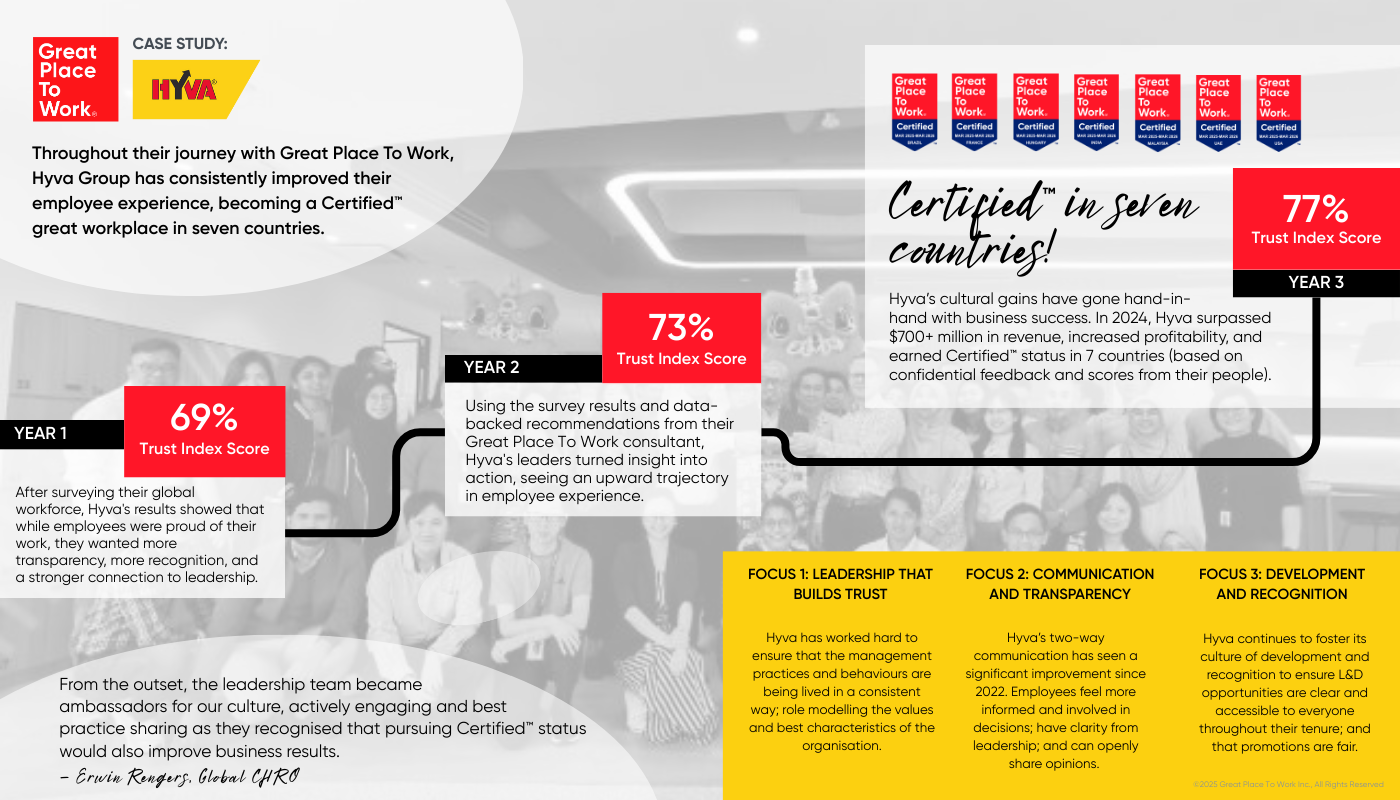I’m sure you realise it already: we need to talk about diversity.
In May 2020, there was a swirl of anxiety, sorrow, frustration, anger, hope, questions and stress across the globe.
Like you, your employees were likely confronted with the deeply disturbing news (perhaps had even seen the various videos of George Floyd’s murder, other acts of racial injustice and violence surrounding protests) that sparked fear and outrage so many of us experienced.
It may have felt nearly impossible to concentrate on getting work tasks done when the world seemed to be ending and world leaders were failing their communities.
Managers can sometimes, quite understandably, feel the urge to shy away from having a tough conversation with their people for fear of either themselves or someone else in their team saying the wrong thing, or inadvertently causing more pain.
But now is not the time to be silent. While your concerns about possible mishaps are valid, talking about race and equality in your workplace is something HR leaders need to take on if you, your team and your business are going to move forward amidst the crisis of inequality, as well as the crisis of Covid-19.
Talk about it. Together. Now.
And guess what: talking will help. A lot.
When we share, we feel less alone. Opening up the conversation validates people's feelings, provides a new and psychologically safe outlet, and helps everyone feel cared for, supported and heard. It works best if the whole company participates, but even talking at individual team level has benefits.
How to lead that tough conversation
1. Set your intentions clearly
The goal is to provide a safe space for every person to share their experience, whatever it is - not to fix or solve anything. Let employees know that all feelings and questions are welcome, and remind them of any wellbeing tools or resources that are available for people to utilise.
2. Think about who will be in the (virtual) room and speak to them
Are members of your workforce parents fearful of the world their children are growing up in? Do line managers need help in approaching their teams for smaller group or 1-2-1 discussions? Perhaps there is someone on your own HR team who may be suffering psychologically? Knowing your audience ensures your conversation acknowledges, validates and shows support for what’s most important to your employees.
3. Make the time
As UK lockdown measures ease and businesses begin to reopen, it may be that this is your busiest time. Setting a dedicated 60-minute slot for your discussion will show employees that their leaders believe in the importance of this conversation. Make sure everyone is able to clear part of their calendars and is encouraged to participate in the session.
Video conferencing technology is a great tool for ensuring your employees feel physically safe. Be prepared to allow for flexibility if the discussion goes over the dedicated time.
4. Prepare facilitators & groups
For larger organisations, it may be best to start with everyone together before moving into breakout groups of about 6 to 8 people to continue the conversation. Prepare your breakout groups carefully. If you have a high-trust environment where employees can have respectful conversations about tough topics, then less structure is probably needed.
If your organisation has low trust; if Covid, gender, race or politics are charged topics for you; or if there is a wide variety of thought, feeling and opinion across your business, more facilitation and organisation may be needed to create a positive experience.
No matter what level of structure is employed, designate a facilitator who can manage that kind of discussion for each group and ensure every individual feels safe to share freely without judgment or criticism, even when others may disagree.
5. Have the discussion
When the time comes, begin with a senior leader sharing the intentions and ground rules with everyone. It can also be helpful to focus on whichever of your company values is appropriate to this discussion (for example, Care, Respect and One Team are our Great Place to Work® UK values we felt were most appropriate).
Encourage everyone to keep the specifics of who said what confidential — we can share generally, but it’s better not to quote others to avoid misrepresenting them. Then split into your breakout groups. These simple discussion questions can help groups get started:
- How are you experiencing what's happening?
- What are you confused about?
- How can I support you/How can we support each other?
- How do you find hope to keep going?
- What can the organisation (both internally or externally in the community) do to create progress when it comes to these issues?
Each facilitator should set the tone by opening with some personal truth and vulnerability. Participants will take their lead and determine how safe the space is by the openness and honesty of the leader.
Keep the focus on sharing personal stories and feelings. Ensure that each person gets an opportunity to speak at least once, if they want one. Help curb interruption and cross-talk to give open airtime to all. And if individuals hold differing opinions, that’s okay too. Do your best to ensure no-one debates or negates another person’s personal experience.
6. Close with compassion
Have the facilitator or senior leader close the session with thanks to everyone for their participation and reiterate any resources available for those who may wish to use them. If specific requests for support have been expressed during the conversation, do whatever you can as an organisation to deliver those.
If a conversation went sideways in a breakout group, the facilitator should call in their HR or people leader(s) and collaborate on how to resolve this. Don’t ignore a messy problem – it’s better to get in there and at least try to make it right.
Moving forward
This is not a one and done situation. Most likely we will all need to keep having discussions about the state of the world for the immediate future. If this format works for your team, great! If not, reflect on what needs to change along with what worked well for your culture to create a better experience for next time.
Be brave and go for it.
The pandemic and subsequent events of racial and other discrimination have significantly challenged the way we work – except for one thing: trust.
Employees will always value knowing that their leaders and colleagues genuinely care about them and their experience, and to be given an opportunity to show that they care about the experience of others they work with. These difficult conversations can also help employees to build new relationships with individuals they may not know very well and help leaders to share some vulnerability and build trust.
Plus, if those valuable outcomes aren’t enough for you, productivity is just the cherry on top. Sharing one’s experience is often cathartic and empowers people to get back to work and focus in a way that certainly wouldn’t have happened without the discussion.
So be brave and go for it.
Great Place to Work® UK is here to help you create a great workplace for all. Access our free resources to help you support employees during the lockdown, and book a complimentary consultation on our new Leadership & Career Development Coaching service available virtually for your remote employees.

The content of this feature is adapted from the blog post by Julie Musilek, Director of Product Marketing at Great Place to Work®.











